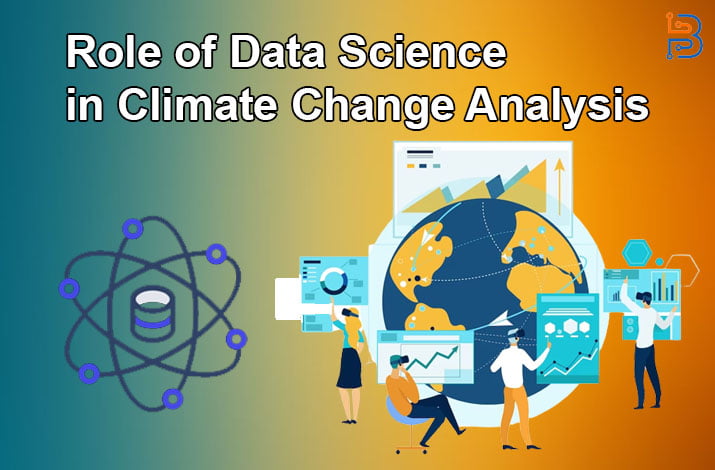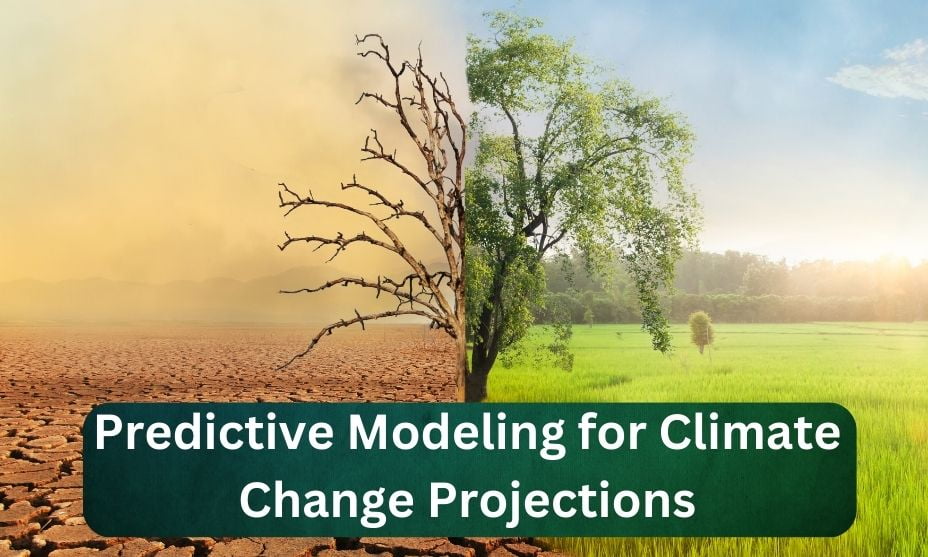Understanding The Role of Data Science in Climate Change Analysis

Climate change is one of the most critical global challenges of our time, impacting ecosystems, economies, and human well-being. Understanding and addressing climate change requires comprehensive analysis and data-driven approaches. By harnessing the power of data science, researchers can uncover patterns, predict future scenarios, and assess the impacts of climate change with greater accuracy and precision.
This article explores the pivotal role of data science in climate change analysis and highlights its potential in informing policies and driving sustainable solutions.
Understanding Data Science
Data science is a multidisciplinary field that combines statistical analysis, machine learning, and programming to extract valuable insights and knowledge from vast and complex datasets. It includes applying scientific methods and algorithms to discover patterns, trends, and correlations within the data, enabling organizations to make data-driven decisions. Data scientists collect, clean, and preprocess data, construct prediction models, and inform stakeholders using mathematics, statistics, and computer science. Data science is essential in healthcare, finance, marketing, and environmental study due to its capacity to find hidden patterns and provide actionable insights.
In today’s data-driven world, understanding data science is vital for organizations to stay competitive and make informed decisions. It encompasses a wide range of techniques, including data exploration, statistical analysis, machine learning, and data visualization. It involves working with structured and unstructured data, such as numerical data, text documents, images, and videos. Data scientists employ programming languages like Python or R and utilize advanced tools and technologies to manipulate, analyze, and visualize data effectively. Data science is not limited to data analysis alone but also requires a strong foundation in domain knowledge and effective communication skills to present findings and insights to non-technical stakeholders. By harnessing the knowledge of Data Science course, organizations can unlock the potential of their data, gain valuable insights, and drive innovation and growth.
Understanding Climate Change and its Challenges
Climate change refers to long-term shifts in weather patterns and global temperatures, primarily caused by human activities such as greenhouse gas emissions. The study of climate change involves complex challenges, including gathering accurate and comprehensive data, understanding intricate climate systems, and predicting future scenarios with uncertainties. Data science can address these challenges by providing powerful tools and techniques for analyzing climate data.
The Role of Data Science in Climate Change Analysis
Data science plays a vital role in climate change analysis by leveraging advanced algorithms and statistical models to extract decision-making insights from vast amounts of climate data. It involves collecting, preprocessing, and integrating data from various sources such as satellites, weather stations, and climate models. Data Science and Machine Learning course teaches techniques, including data visualization, to help identify patterns, trends, and correlations within the climate datasets. It enables researchers to understand the drivers and impacts of climate change more comprehensively.
Predictive Modeling for Climate Change Projections

Predictive modeling is crucial in projecting future climate scenarios and understanding the potential impacts of climate change. Climate models, based on mathematical equations and physical processes, simulate the behavior of the climate system under different conditions. Data science enhances these models by incorporating historical climate data, observational data, and feedback mechanisms. Machine learning algorithms improve the accuracy and reliability of climate change predictions by identifying complex patterns and relationships within the data. It is essential to acknowledge and address the uncertainties and limitations inherent in climate projections.
Data Science Techniques for Climate Change Adaptation and Mitigation
Data science empowers data-driven approaches for climate change adaptation and mitigation by analyzing historical climate data and combining it with socioeconomic factors. These scientists can identify areas most susceptible to extreme weather events, sea-level rise, or ecosystem changes. These insights inform the development of adaptation strategies, including infrastructure planning, disaster management, and land-use policies, aiming to reduce vulnerabilities and enhance resilience.
Data-driven approaches optimize resource allocation and policy decision-making, facilitating effective mitigation measures. These measures include renewable energy deployment, emission reduction policies, and sustainable land use practices. Data science helps policymakers identify the most impactful strategies to combat climate change. By analyzing energy consumption, greenhouse gas emissions, and environmental impacts.
Case Studies and Success Stories
Real-world case studies demonstrate the transformative role of data science in climate change analysis. Based on extensive climate modeling projects, the Intergovernmental Panel on Climate Change (IPCC) reports provide critical insights into future climate scenarios. These reports serve as a foundation for policymakers worldwide to develop strategies to mitigate the impacts of climate change. For example, using machine learning algorithms in extreme weather prediction models has significantly improved forecasting accuracy. It aids in preparedness efforts and reduces the potential risks associated with extreme events.
Furthermore, impact assessment studies leverage data science techniques to quantify the effects of climate change. The effect can be on ecosystems, agriculture, human health, and other sectors. By combining climate data with socioeconomic indicators, researchers can evaluate the impacts of climate change. They can work on vulnerable communities, guiding the formulation of targeted adaptation and mitigation strategies.
Ethical Considerations in Climate Change Analysis
While data science offers tremendous potential in climate change analysis, it also raises ethical considerations. Data collection and analysis must adhere to privacy, security, and transparency principles. Ensuring responsible use of personal data and addressing potential biases in climate datasets is crucial. Transparency and open data practices build trust among researchers, policymakers, and the general public.
Challenges and Future Directions
Despite the progress made in integrating data science into climate change analysis, challenges remain. Ensuring data quality, accessibility, and interoperability across diverse sources remains a significant hurdle. Collaboration among researchers, policymakers, and communities is crucial for effective data sharing and interdisciplinary approaches to climate change research. Advancements in emerging technologies, such as satellite remote sensing, Internet of Things (IoT) sensors, and data analytics. This hold promise for improving data collection, monitoring, and analysis in climate change research.
Conclusion
Data science plays a pivotal role in climate change analysis. It enables researchers to understand the causes, impacts, and future scenarios of climate change with greater precision. By harnessing data-driven approaches, policymakers can develop evidence-based strategies for climate change adaptation and mitigation. Addressing ethical considerations, such as data privacy and transparency, is essential for maintaining public trust. Collaborative efforts and technological advancements will continue to shape the future of data science in climate change analysis. Empowering us to address this global challenge more effectively and build a sustainable future.






